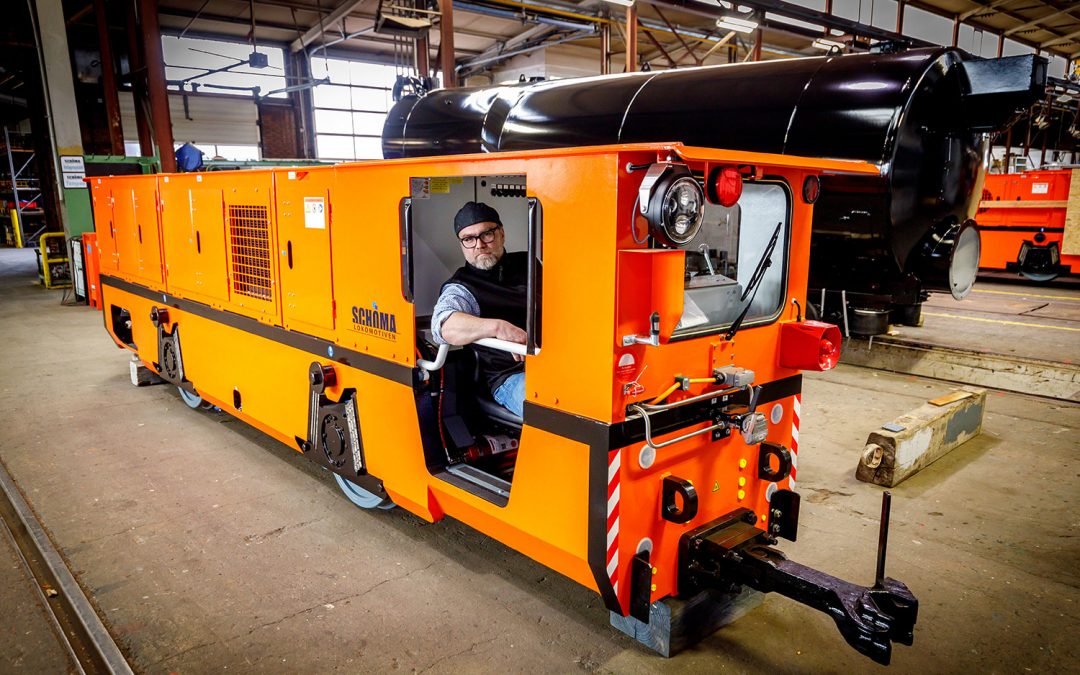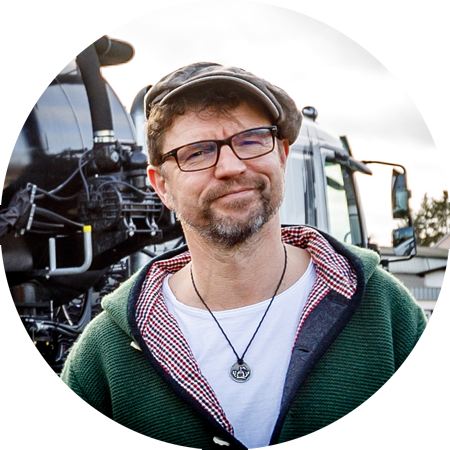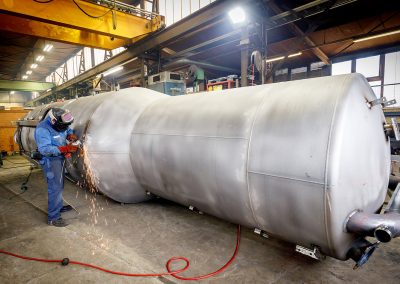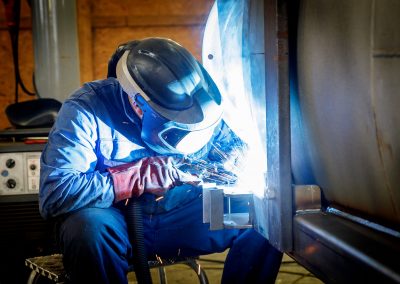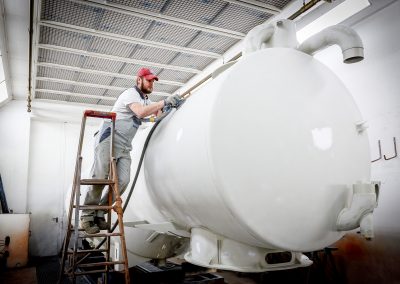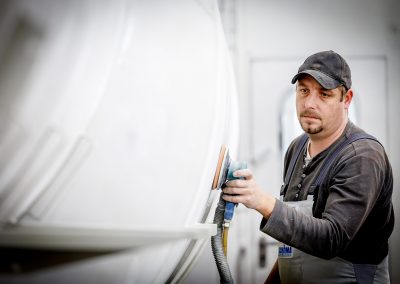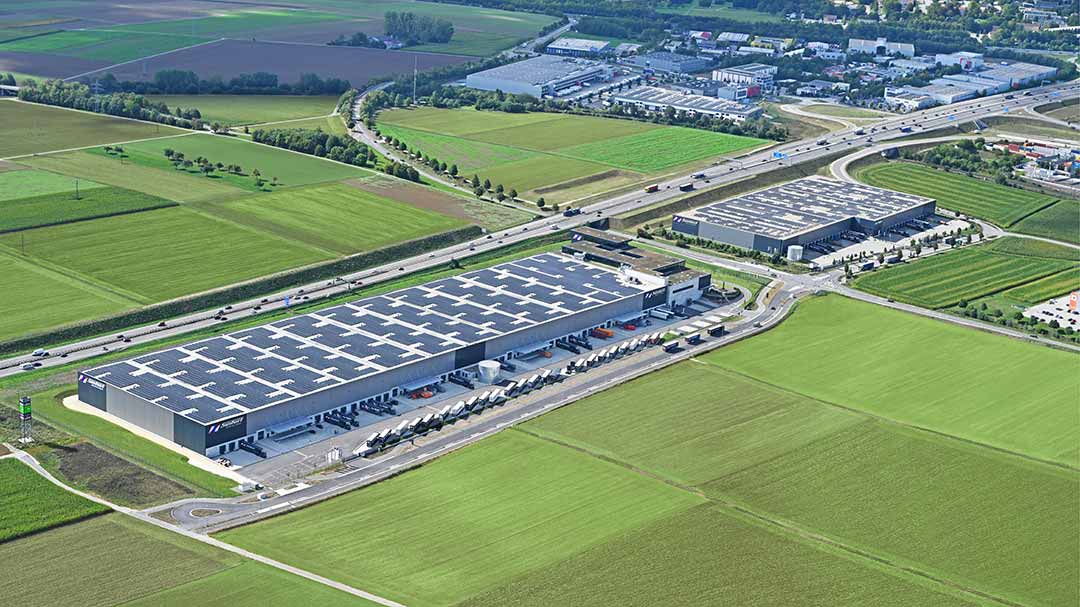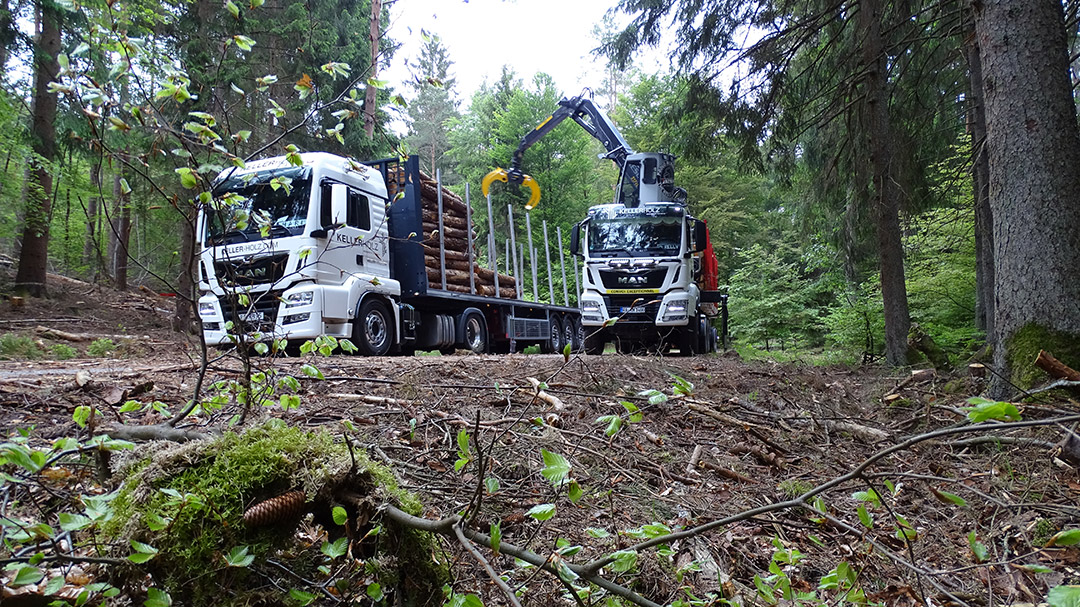Text: Oliver Schönfeld
Photos: Holger Jacoby
From rail to road: Schöma Maschinenfabrik, headquartered in Diepholz, is one of the world’s leading suppliers of special locomotives, such as those used in tunnel construction, for example. Two years ago, the company also started to manufacture agricultural semi-trailers for liquid manure transport. They didn’t have to wait long for success to come knocking.
Second line of business improves capacity utilisation
‘We clearly exceeded our annual targets right from the start,’ reports Managing Director Carsten Brendler. Why did the company decide to enter a new market segment without a fixed customer base and basically without any orders? The answer is short and sweet: ‘Simply because we can!’ Of course, the decision was preceded by more extensive considerations. ‘Our primary objective was to open up a second line of business in addition to locomotive construction and to ensure that our production facilities could operate at a more constant capacity all year round,’ explains Brendler. It is obvious that farm machinery is quickly becoming the focus of attention in the agricultural state of Lower Saxony. ‘Another advantage was that we basically didn’t need to invest anything except time and effort. We simply had to do it. And we then didn’t have to wait too long for the orders to come in.’
»We didn’t have to think hard. We simply had to do it.«
Schöma Managing Director Carsten Brendler on entering the agricultural technology market
It was certainly beneficial that Schöma design engineers have been familiar with the highest quality standards and very individual customer requirements for decades. Founded in 1930, the company has built up a leading position in the construction of special locomotives and gained an excellent global reputation over the decades. So far, over 7,100 locomotives in all size and weight classes have left the Diepholz plant. Weighing from three to 80 tons and with outputs from 38 to 360 kilowatts, the rail vehicles always meet the exact specifications that the respective customer requires of the products.
Leader in global infrastructure projects
The first Schöma locomotives were used especially for regional peat extraction. From the 1970s onwards, the company shifted its focus underground, concentrating on tunnel construction projects. ‘Our ultimate breakthrough came with the construction of the Eurotunnel between England and France,’ reports Brendler. Since then, hardly any major infrastructure projects have been carried out that the family-owned company has not supplied – from underground railway construction in London, New York and Singapore to the project of the century: the Gotthard Tunnel. For this project alone, around 100 tunnel locomotives ensured reliable underground construction site traffic.
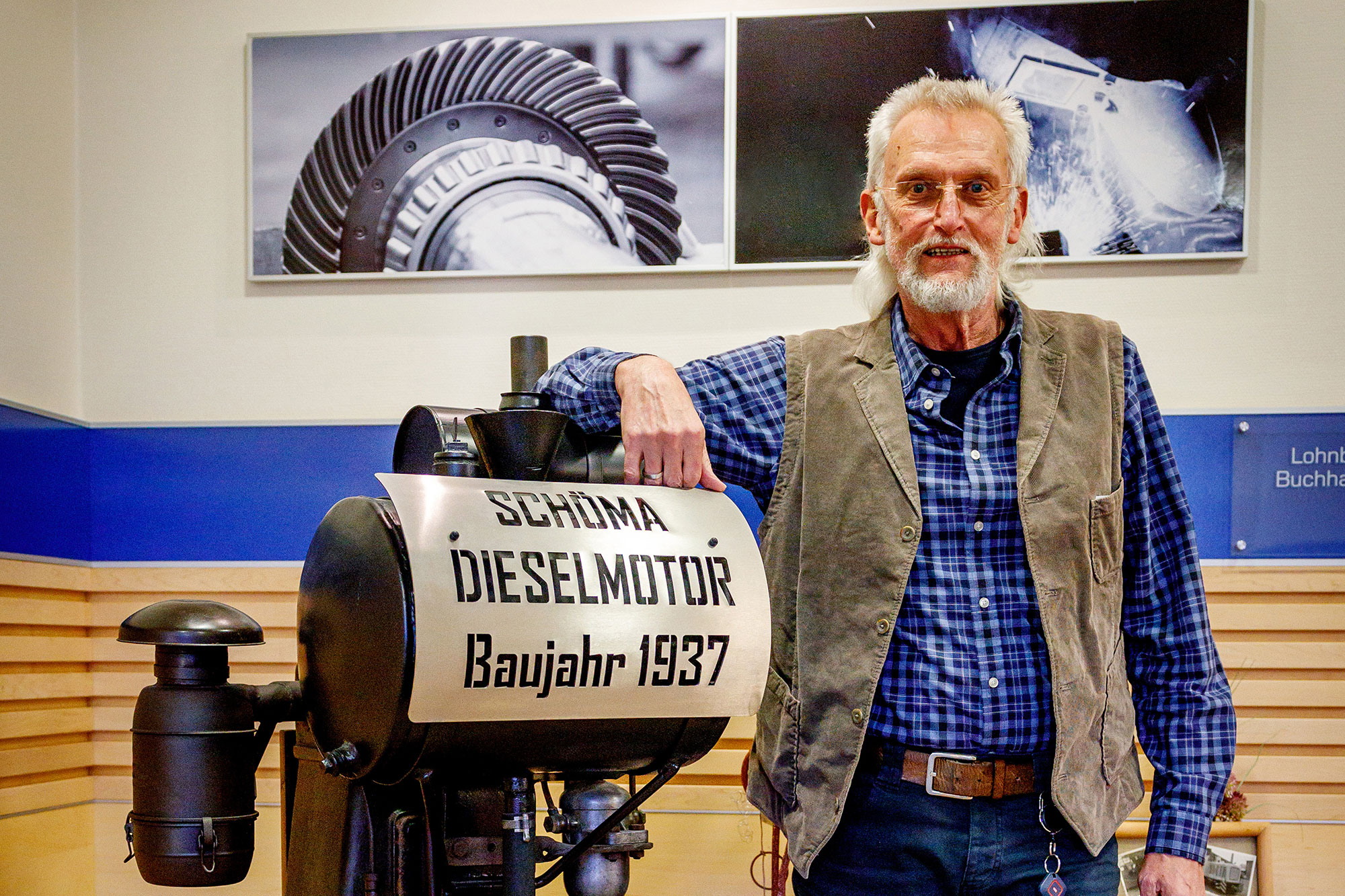
Time and time again, Schöma came up with new innovations. These include, for example, the first hydrostatic drive with two coupled locomotives that can set up to 16 axles in motion – a real innovation in tunnel construction in the mid-1990s. The company introduced the first battery-powered locomotives at the turn of the millennium. The latest stroke of genius from Diepholz is the hybrid drive for locomotives, which can switch between electric power and a diesel engine as required. In 2019, Schöma hybrid locomotives were used for the first time in tunnel projects in the USA and Great Britain. In addition, Schöma has been manufacturing large shunting and work locomotives for industrial companies as well as locomotives for tourist purposes for decades – including for the island railways on the East Frisian Islands of Langeoog, Wangerooge and Borkum. And now also liquid manure semi-trailers for agriculture.
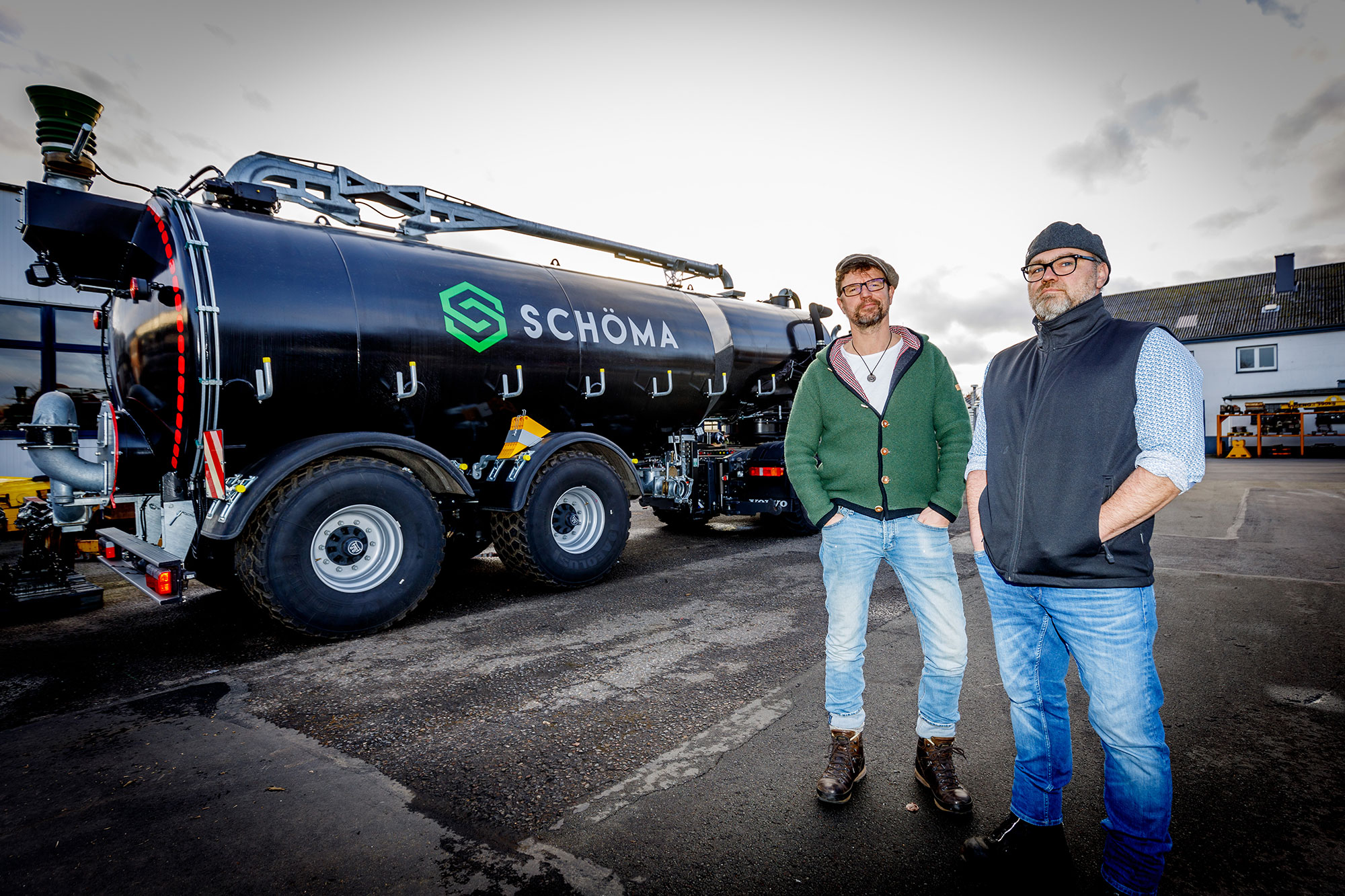
Manufacturer with an unwavering commitment to quality
When touring the factory, visitors never get the impression that they are in a mass-production facility. On the contrary, the production hall looks more like an artisan’s workshop. Employees’ high expectations of themselves and their work are immediately noticeable during discussions – as is their pride in the final result. ‘Sheet thickness under four millimetres? This is what we call foil,’ explains Haskamp with a smile. Quality comes first, right down to the last detail. Around 400 hours of work and a great deal of manual labour are required before a new tank semi-trailer can roll out of the yard-
Before the slurry is applied to the fields, it is decanted. In order to meet special requirements, Schöma designers have put a lot of effort into developing a particularly stable design. Complex FEM (finite element method) calculations to determine load capacity and stability preceded the development activities. The result is a modular agricultural semi-trailer that can be adapted to each customer’s requirements. The tank semi-trailers are available with a capacity of up to 31,000 litres, although 26,000 litres has become established as the standard size. In total, the three-axle semi-trailer can weigh up to 34 tons, including payload.
Low centre of gravity means outstanding road stability
One of the special features of the Schöma agricultural semi-trailer is the particularly low centre of gravity, which enhances road stability and thus increases safety, even with heavy loads. ‘The centre of gravity of our tank semi-trailer is about 30 to 40 centimetres lower than with conventional designs. Our vehicle is in high demand, especially in mountainous areas such as the Allgäu region, for example, thanks to its excellent manoeuvring capabilities,’ explains André Haskamp. The BPW running gear with its AGRO FlexFrame plays a major role in safe road handling. It made it possible to design the tank body with a low centre of gravity.
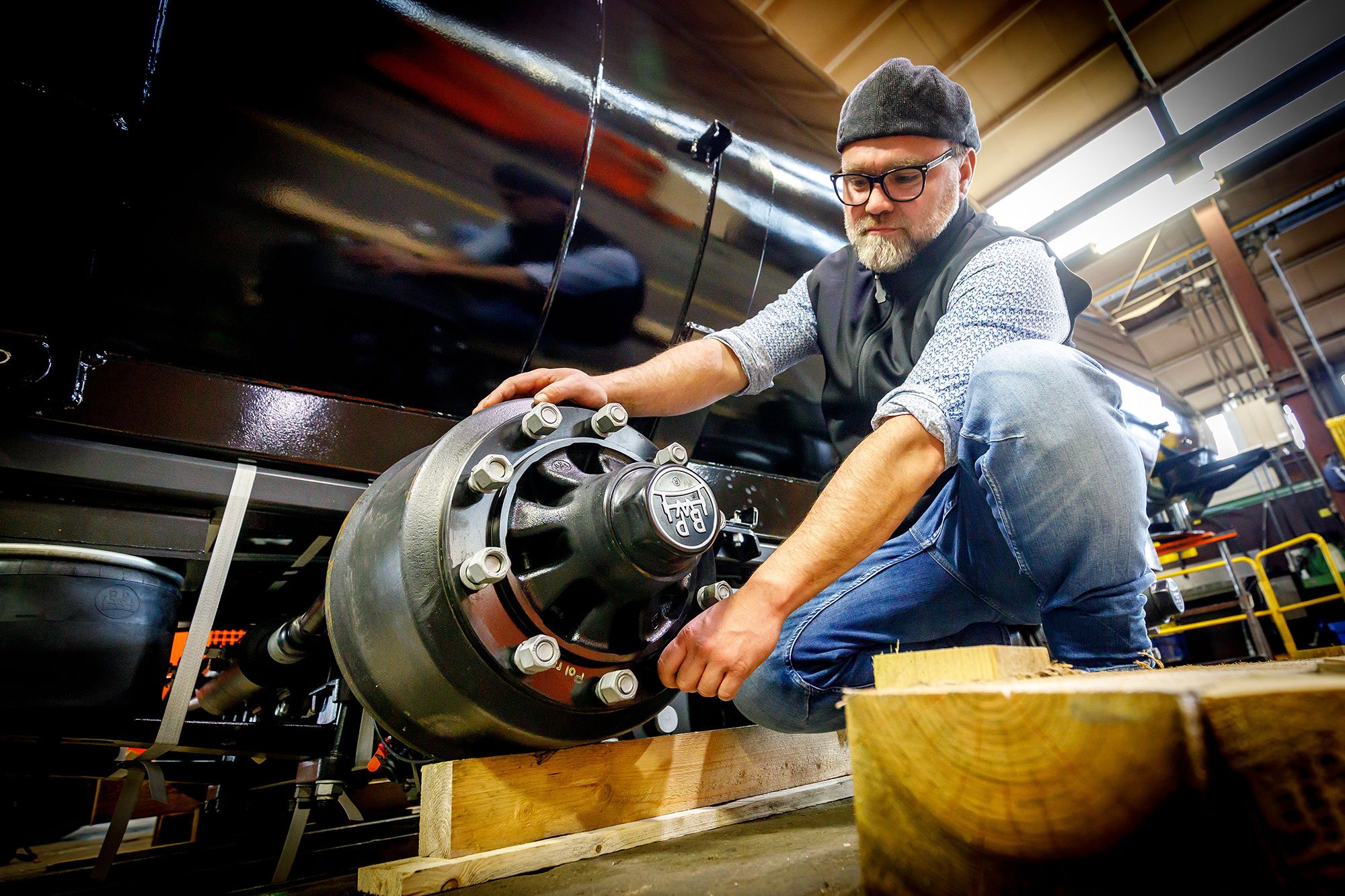
Close cooperation with BPW
Schöma had no previous contact with BPW Bergische Achsen before entering the agricultural machinery market. ‘But potential agricultural customers quickly made it clear to us that they insist on using BPW axles,’ explains Managing Director Brendler. No sooner said than done: The company selected the AGRO FlexFrame tandem complete chassis with auxiliary frame and a fully assembled EBS brake system from Wabco for the new semi-trailers. ‘BPW’s overall system and ongoing technical support play a key role in our success in this segment,’ highlights Carsten Brendler.
The Schöma order books are even better filled thanks to the new market segment. In order to be able to react quickly to demand, the tank semi-trailers are also continuously pre-produced. 20 to 30 agricultural semi-trailers leave the factory every year; current production capacities do not allow for more. However, if demand continues to grow, expansions are not out of the question. And in light of the new customers the company is gaining in the agricultural sector, it makes sense for the company to consider offering other products in the field of agricultural technology. After all, the technical tinkerers in Diepholz have not yet run out of good ideas over the past 90 years.

